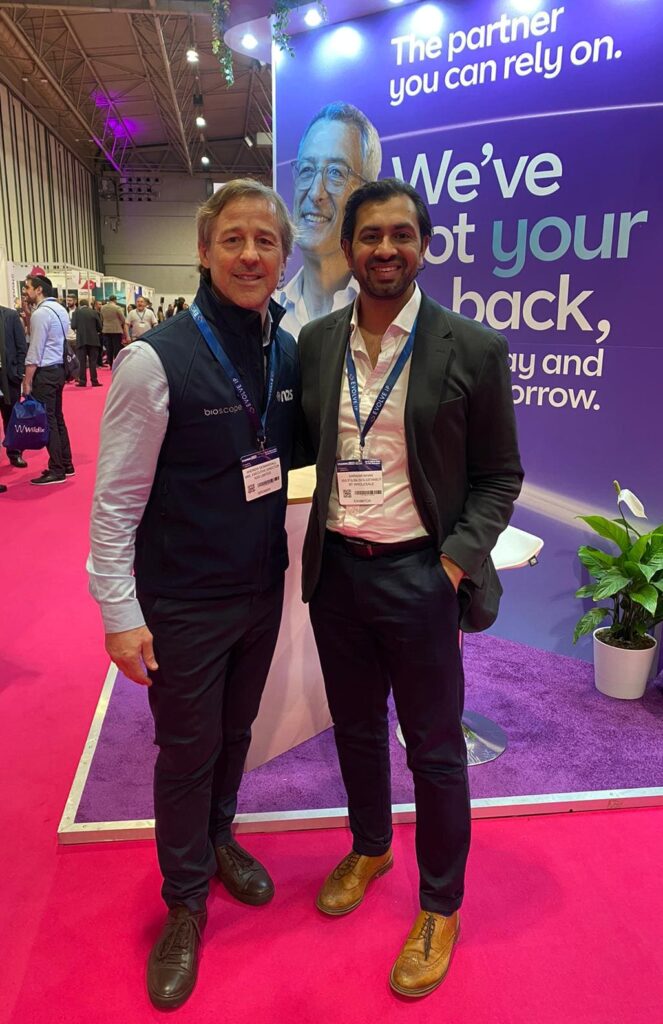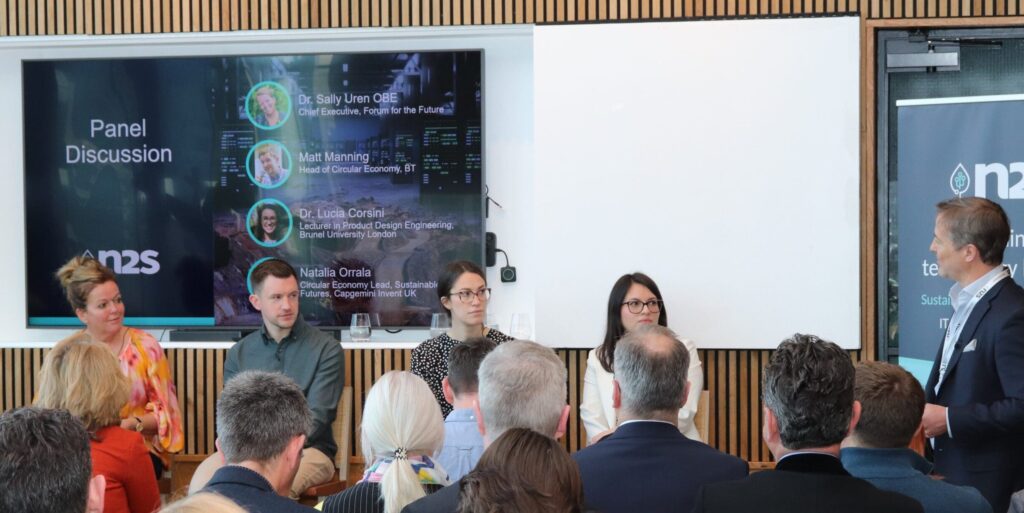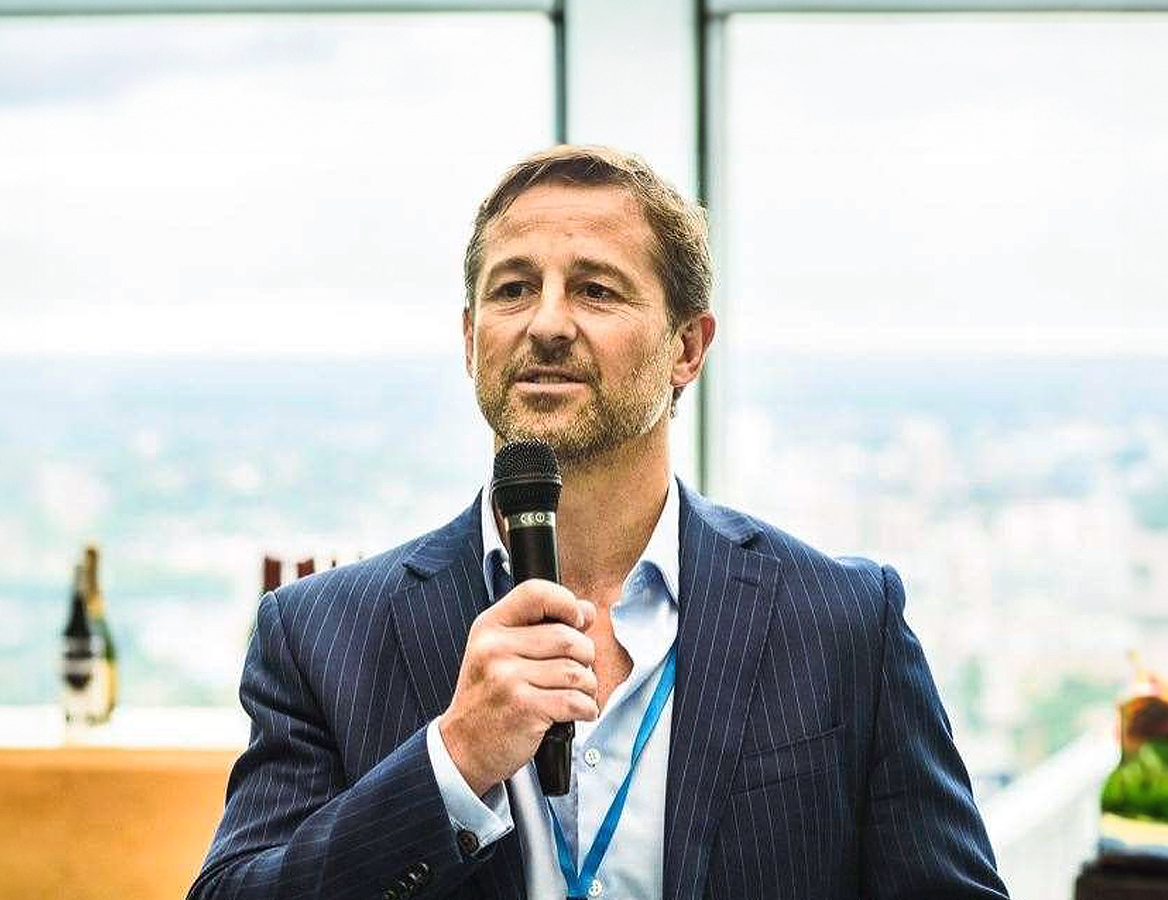Following two recent industry events, the Channel Live ICT exhibition and conference in Birmingham and n2s Technology Sustainability Forum late April, I have taken a moment to reflect on where we are, where we need to be and what it will take to create the momentum to get there.
An important part of n2s‘s business mission is to educate around the concept of circular economy, “an economic system based on the reuse and regeneration of materials or products, especially as a means of continuing production in a sustainable or environmentally friendly way”.
There has been significant progress in awareness and the volume of discussions, debates and articles on the subject has almost tripled in the past five years. The linear model of previous generations, where virgin material extraction was unlimited and obsolete products were discarded, has changed. With population growth, landfill and leaking methane, there needed to be a rethink to this global problem of disposals.
Partnering with forward-looking businesses, like BT Group, has been a core strategy for n2s. BT also participated in both recent industry events, leading the charge to win business hearts and minds and drive forwards circularity. At Channel Live, BT’s Sarwar Khan, global head of sustainability, was prominent in leading discussion and at our own event, I was joined by Matt Manning, head of circular economy.

BT is working to be circular by the end of March 2030 and as part of that mission, is rolling out new, energy-efficient, high-speed mobile and fibre networks. To ensure a sustainable transformation, BT has formed an Exchange Clearance Operation (ECO) and is working with us to remove, reuse and recycle their old legacy network, also adopting n2s’s innovative bioleaching process (developed with Coventry University and Bioscope Technologies) to extract and recover precious and critical metals from technology equipment for re-use.
With awareness raised, following initiatives such as this, the circular economy concept has achieved “megatrend” status, but the sad reality is that global circularity is in decline. The circularity gap report was launched at the World Economic Forum in Davos in 2018, establishing that our world economy was only 9.1 per cent circular. In 2023, the figure had fallen to 7.2 percent – driven by more than 500 gigatonnes of material extraction. That is 28 per cent of all the materials humanity has consumed since 1900.
Between the Paris & Glasgow COPs, more than half a trillion tonnes of virgin materials was consumed. Each year we have smashed through the planet’s safe environmental limits. The IT channel is seeing more and more requests to measure the lifecycle of products from design, to use and end of life. The challenge now is for their clients to use less, use longer, use again and regenerate. A total reset of a sales target. A new approach is needed.

So, what can we do as a business to drive the adoption of circular practices that would reduce projected material extraction and use by a third?
Firstly, we must continue to model and advocate engagement with environmental issues at a personal and emotional level. Education must continue and we must innovate and develop policies like the tech amnesties we operate for partners, that encourage individuals in organisations to look in their own cupboards for legacy tech that can be brought to work and safely and securely broken down and bioleached for precious metal resources. Each of us in the UK has around 25kg of the stuff at home. Creating this personal involvement and call to environmental action is fundamental to change at an organisational level.
Secondly, it is self-defeating to continue to build renewable products with a linear mindset – the circular economy has to start in the design phase of future products. The business environment is changing with new policy and legal frameworks being introduced that incentivise circularity and penalise linear. We need to reframe the conversation. To quote Dr. Sally Uren, OBE at n2s recent event, “Strip away the fancy language and say, ‘why wouldn’t you want to understand your environmental and social risk, because if you don’t, it could undermine not just your short-term profitability today, but also your future resilience’?”
n2s and sister company, Bioscope Technologies, can support IT businesses to totally reset their approach to sales, creating a business case that provides transparency of measurement and reporting. With our partners, we can create a scientifically, ethically and environmentally sound approach to the business of circularity.
The challenge of the IT channel is how we get early access to new products and technologies allowing us to stay ahead of the curve and provide solutions that are embedded with sustainability and circularity. n2s is ready to grasp the opportunity.




